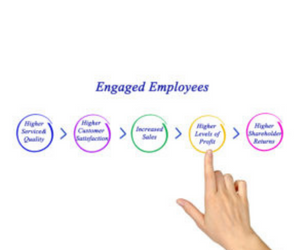Breast Cancer and Your Immune System
Want a sobering statistic?
If you’re a woman, you have a one in eight chance of getting breast cancer during your lifetime.
Dr. Patricia Riley, Medical Director of the Breast Diagnostic Center at PRMC, can treat you if you get the disease, but she’d much rather keep you from getting the disease in the first place. However, one of the problems with prevention is, in only a few instances can we be sure of what causes breast cancer.
As she points out, “We know, for example, that flight attendants have a higher incidence of breast cancer, and the reason is radiation. At high altitudes, there’s less atmosphere available to block damaging radiation.”
She goes on to say, “If you fly between and LA and New York, you’ll get the equivalent radiation of one mammogram. For an individual making an occasional trip, it’s virtually nothing, but for women doing this consistently, day after day, year after year, the exposure becomes significant.”
Genetics
Genetics is another cause of breast cancer. According to Riley, about 10% of breast cancers are clearly genetic.
However, as she quickly points out, that means 90% of the women with breast cancer don’t have a family history of it. “Unfortunately, the press plays up the genetics part,” she says, “and women start assuming that if it doesn’t run in their family, that they have only a remote risk of it. But the reality is, 90% of the women with breast cancer have no family members with it.”
We know about radiation and genetics as causes of breast cancer, but in many other important areas, Riley says we’re less sure of the causes. “The question of whether hormones increase your risk of breast cancer is unresolved,” she points out. “Some studies show that yes, taking hormones increases your risk and others have shown that no, it doesn’t.”
Hormonal Levels
There are also other intriguing studies such as ones that show a relationship between developing breast cancer and having had children at a young age. Other studies show increased risk for women who started their periods earlier in life and went through menopause later in life.
“We think this is related to the amount of hormones in their bodies,” Riley says. “There’s also the observation that women who are overweight are more at risk, and we know that having extra fat increases hormonal levels.”
Decreasing the Risk
Although there’s a lot we don’t know about the causes of breast cancer, Riley believes there’s still a lot we as individuals can do to decrease our risks.
Her clinical experience convinces her that a person with a strong immune system is less likely to get the disease.
How can you strengthen your immune system? She urges us all to eat at least five servings of fruits and vegetables a day, get at least 30 minutes of exercise most days, don’t smoke, and reduce the stress in our lives.
For her, stress reduction is a particularly important part of this mix. “I can’t tell you how often a patient tells me ‘Two years ago I went through a terrible divorce’, or ‘I lost my job.’” Riley would like all of us to work on the spiritual side of our lives so that when stressful times come, we have something bigger than ourselves to fall back on.
Patricia Riley’s Wish List
That we’d all do “the same old stuff you’ve heard for years and years. Exercise, eat your fruits and vegetables, watch your weight, and have a mammogram every year after age 40.”
Search Articles
Latest Articles
Mitzi Perdue Transformational Leadership Lessons Learned In Life
Mitzi-Perdue Transformational Leadership Lessons Learned In LifeAbout The PodcastUnscripted, real, transparent information and interviews from Wes Schaeffer, The Business Fixer, to help you master inbound marketing and generate more inbound sales that close faster,...
Mitzi Perdue | Author | 10-20-24
Mitzi Perdue | Author | 10-20-24Watch The Episode About The Episode Mitzi Perdue | Author | 10-20-24 Learn more about your ad choices. Visit megaphone.fm/adchoicesAbout The PodcastHosted by John Catsimatidis every Sunday at 8 a.m., The Cats Roundtable mixes common...
Tessa Adams’ Journey to Create a Safe, Supportive Online Community for Mental Health
https://foreignpress.org/journalism-resources/tessa-adams-journey-to-create-a-safe-supportive-online-community-for-mental-health Publication –foreignpress.org
Arming Ukrainian Soldiers with Poetry and Humor
https://foreignpress.org/journalism-resources/arming-ukrainian-soldiers-with-poetry-and-humor Publication –foreignpress.org
Subscribe to Updates
About Author

Mitzi Perdue is the widow of the poultry magnate, Frank Perdue. She’s the author of How To Make Your Family Business Last and 52 Tips to Combat Human Trafficking. Contact her at www.MitziPerdue.com
All Articles
Employee Engagement – Gallup Really Knows!
Employee Engagement - Gallup Really Knows!Visit Gallup, the People Who Really Know There are 1.3 billion full-time employees in the world. Give a guess: how many feel enthusiastic about and committed to their work? 1) 13% 2) 30% 3) 82% 4) How the heck could anybody...
Recurrent Vaginitis
Recurrent VaginitisMOST WOMEN WILL AT SOME TIME EXPERIENCE VAGINITIS At some point in their lives, most women will experience vaginitis. It’s one of the most common gynecologic condition encountered in the office. Typically, it comes about when the yeast or bacteria...
Take Action: Beating Your Competitors
Take Action: Beating Your Competitors Act Faster Than Your Competitors The super-successful people I’ve known have all had a huge propensity for action. They had tremendous agility in carrying out projects rapidly. I remember one night in late 1951, my father Ernest...
Transforming Cardiovascular Disease Prevention In Women
Transforming Cardiovascular Disease Prevention In WomenCARDIOVASCULAR DISEASE (CVD) IS USA’S LEADING CAUSE OF DEATH FOR WOMEN One in four women will die of CVD, and to put this in perspective, the annual CVD mortality for women is double that of all forms of cancer...
Obesity In Women: New Insights
Obesity In Women: New InsightsOBESITY HAS MORE IMPACT THAN ANY OTHER CHRONIC DISEASE Obesity has enormous impact, partly because it is so widespread and partly because it exacerbates so many other disease states. In the US, there are 93 million Americans with...
Fingernail Infections
Fingernail InfectionsFINGERNAIL INFECTIONS AFFECT WOMEN MORE THAN MEN In contrast to toenail infections, fingernail infections, especially those caused by candida, impact more women than men. This happens because often women’s jobs as housekeepers or dishwashers...



